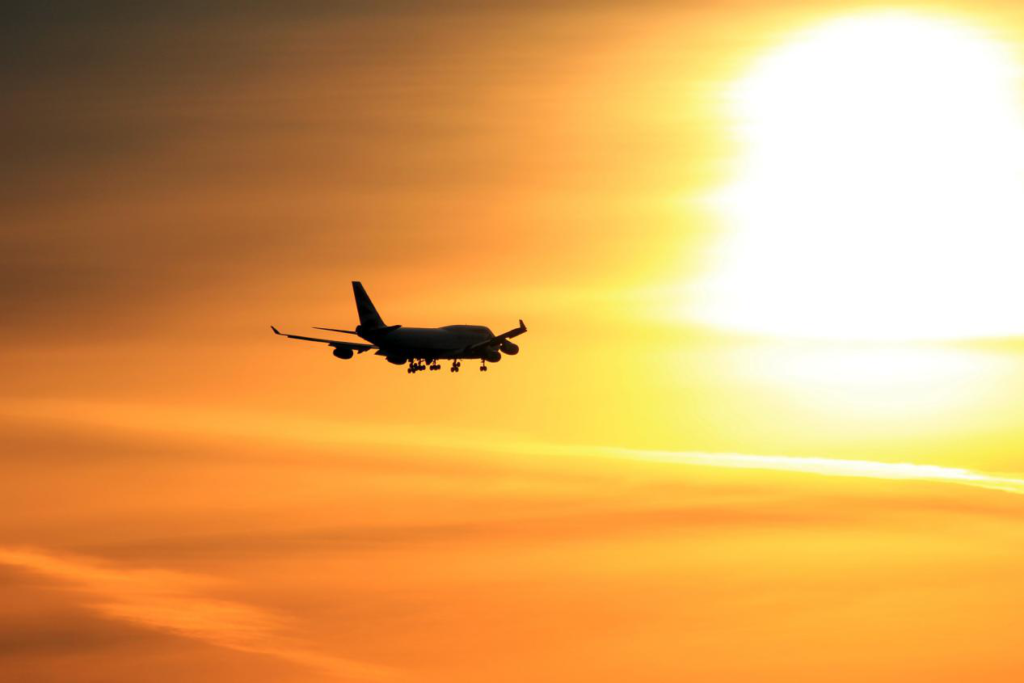This is your long-awaited holiday, but you’re exhausted when you land at a destination in a brand new time zone, or if you’re on a business trip but doze off while talking to your boss at work. This is actually caused by the jet lag reaction. So, what exactly is jet lag?
The chemical-based circadian rhythms in our bodies tell us when to eat and when to sleep, and anyone flying in multiple time zones must contend with the confusion of biological rhythms known as jet lag, this means that the biological clock often breaks down in the first week after a long flight east or west. Jet lag is a kind of extreme fatigue that shows other physiological effects and disrupts the body’s 24-hour rhythm.
How Does Jet Lag Affect You
The internal clock regulates many different functions for our bodies, such as our metabolism, digestion, and our sleep-wake period. Jet lag often bothers international travelers; you are always upset and nervous, your words become chaotic, you feel tired all day and it is difficult to concentrate. If you go from one time zone to another in a short period of time, it can often disrupt the internal circulation of your body, for example, our biological clock tells us to sleep, our body may tell us the opposite, and we feel completely out of sync, which is the cause of jet lag. It may take days to weeks for your body to adapt to a new time zone. If you fly a long distance and fly multiple times in a short time, the jet lag will ruin you.
Common Symptoms of Jet Lag

There are many adverse effects caused by jet lag, and it doesn’t just affect sleep. In general, the common jet lag symptoms are:
-
- Excessive daytime sleepiness
- Headaches
- Wake up too early
- Insomnia
- Inattention
- Irascible
- Wake up in a deep sleep
- Loss of appetite
- Feel hungry at the non-meal time
- No appetite at mealtime
- Mild depression
Secrets to Fight Jet Lag
You can’t avoid jet lag, but you can minimize the impacts of jet lag by following these tips.
1. Adapt to the Time of Your Destination Before Your Trip
Resting well before flying is the best way to overcome jet lag. Before taking off, you should know the time of your destination, which will help you prepare your sleep cycle in advance. A few days before your trip, you can slowly adjust your sleep plan to accommodate the new time zone. You will want to do this constantly, so this may mean changing your sleep plan for 20 or 30 minutes a day to progressively change your body’s internal clock. For example:
- Sleep at least 6 hours before taking off.
- When flying eastward, sleep at least one hour in advance a few days before departure.
- When flying westward, sleep at least one hour later in the days before departure.
If you have to drive for several hours to reach the airport, you can consider staying near the airport the night before. You will fly away, well rested, and enjoy the sunshine in a new city.
2. Develop a Healthy Diet
Our circadian rhythm can help regulate metabolism. It tells us when to eat and helps us digest our food better. Therefore, in addition to slowly changing your sleep schedule, adjusting your diet to match your new time zone can greatly reduce the impacts of jet lag.
Eat nutritious foods, such as fresh fruits, vegetables, protein or fiber, rather than sweets or carbohydrates, and eat small meals often.
Avoid alcohol and caffeine. Alcohol will keep you awake, and caffeine will raise your natural heart rate. When you mix it with the dry air on the plane, these drinks can actually dehydrate your body and even encourage discomfort, You may also find yourself using the bathroom more continually. Plus, avoid alcohol and caffeine on the day you arrive.
3. Absorb Well-Timed Sunshine and Stay Active

Your biological clock is determined by the amount of sunlight entering your eyes, which means that our bodies use the sunlight to decide when to sleep and when to wake up. So if you avoid or expose yourself to the sun strategically, it can help you speed up your adaptation to the new time zone.
While waiting for a connecting flight, be active at the airport and walk to your next boarding gate, find something to eat, or shopping in the stores. Don’t be afraid to walk around the aisle from time to time in a long-haul flight. You can stretch your limbs in your seat at any time and work out during the flight to get some activity and stay flexible.
4. Consider In-flight Sleep
No matter how well you slept last night, travel is still a difficult thing for the body. Dozing off on a plane can be an effective way to pass the flight time and relax. If you arrive early in the morning, make sure you have some sleep on the plane to help you stay awake until the evening. For evening arrivals, it is possible to take a short nap, avoid sleeping too much on the plane so that you can’t sleep at night. It is suggested that sleep time be limited to 30 minutes.
5. Bring some Sleeping Drugs
Melatonin is a hormone that helps your body know when to sleep and wake up. Melatonin is disordered when your body is affected by jet lag, and you can always take some sleeping pills. They can play a dual role by regulating your melatonin levels. The following medicines may give you some help:
- Ambien
- Melatonin
- Zaleplon
- Eszopiclone
None of these drugs should be a substitute for adequate rest or fatigue when you land, but these remedies can avoid jet lag. Each drug has a different effect on you, please consult your doctor, read carefully and follow the instructions.
6. Jet-lag Cures After Landing

To reduce the impact of jet lag, what you do before and during the flight is very important, but what you do after landing is just as important because you take the local time. After leaving the airport, sleeping may be your first wish. Unless you land at night, you can go directly to the hotel and go to bed at the local bedtime, otherwise, you at least need to stick to it, stay awake, and do the followings:
- Take a shower to restore your spirits.
- Explore the city.
- Go to the park or go for a walk on the beach, breathe fresh air outdoors and look for sunshine instead of sleeping until evening.
- Avoid fast food, drink plenty of water and eat healthy foods, stay hydrated and ingest complex carbohydrates.
- Don’t go to bed as soon as you get to your destination, because it will make you wake up at 2 o’clock in the morning and be exhausted before breakfast. If you go to bed one or two hours earlier than the normal local bedtime, it is OK. Your body needs enough rest to adjust and recover.
The effects of jet lag on people are different, depending on age, physical health, and genetic factors. What you do on the plane (napping, walking, drinking, watching movies, etc.) will shorten or prolong your recovery time. The most generally accepted rule is that if you travel to the East, you should allow you to recover from the jet lag of each time zone for a full day (increased by an hour); After traveling westward, natural recovery from jet lag needs a few days to be equivalent to half the time through the time zone.



